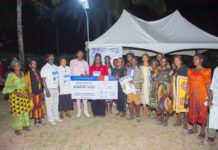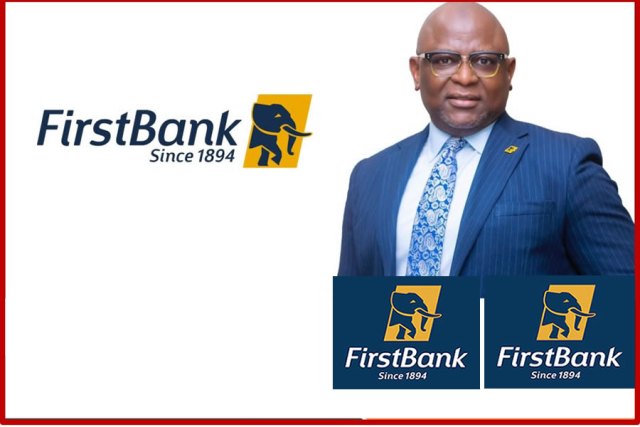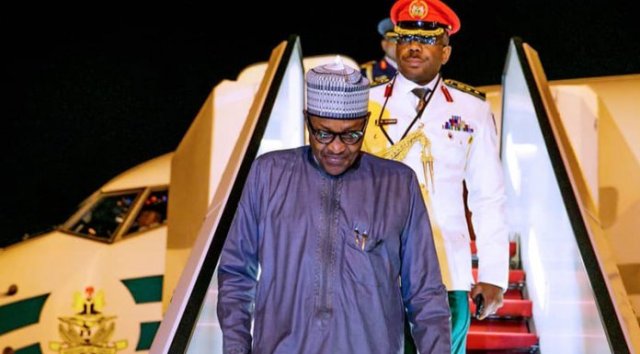Ime Akpan
Money is no longer the exclusive preserve of adults; its management today is regarded as an important life skill and children are encouraged to grow it.
A study by the University of Cambridge found that money habits in children are formed by the time they are seven years old.
Because the world has changed dramatically, children have to be more aware of how money works. And this goes beyond just buying things like fanciful jeans materials, Christmas presents, birthday gifts for them and handing them some money with which to spend at schools and social gatherings.
In recent years, educators, financial institutions and experts have been involved in catch-them-young money programmes designed to nourish financial literacy for children.
So, how can children understand financial matters?
For many children, financial literacy begins at home when parents buy wooden savings boxes with which they (children) are encouraged to save the little tips they get from family friends, running errands for their seniors or the change they bring back from school or church.
Financial institutions have also keyed to teaching children important financial literacy concepts, principles, and skills through time-tested products, exclusively for them. This is where First Bank of Nigeria Limited has made immense impact.
Believing that a financially literate population is good for the economy, the bank joined the rest of the world to commemorate the 2023 edition of Global Money Week (GMW) held from March 21-6 by promoting financial literacy education among 3,000 children across the country.
The GMW is an international initiative launched by the Organisation for Economic Co-operation and Development (OECD) and endorsed by the United Nations and other intergovernmental bodies. Since the campaign was first launched in 2012, over 176 countries have taken part in GMW.
The programme has seen the delivery of targeted financial education sessions and workshops to over 53 million young people worldwide. The objective of the global campaign is to draw attention to the fundamental role of money management education for young people as well as to support the lifelong development of positive personal financial behaviours and decision-making skills.
Held under the theme ‘Plan your money, plant your future’ FirstBank took the campaign to 21 secondary schools in 21 states of the federation. It targeted children within the age range of 10-17 years.
The CEO of the bank, Dr Adesola Adeduntan, led his staff to promote and inspire young people to learn about money, livelihoods and entrepreneurship.
He hosted a virtual knowledge sharing on the ethics of managing money at Redeemers Secondary School Barnawa Kaduna State, while his staff complemented his effort by visiting at least one school in 21 states, including the FCT, where children were engaged with the rudiments of financial literacy.
“An astute understanding of the concept of money during one’s childhood is a critical asset for one to be exposed to as it keeps the mind productively empowered in making smart money decisions to not just secure the future but its betterment.
“The bank continues to encourage young people to develop their money knowledge and skills, by giving them the confidence to make informed financial decisions that positively impact them, both now and in the future,” the bank said during the GMW campaign.
It explained that the 2023 edition of the GMW was specifically selected to prompt young people to be forward-looking and to expand their knowledge base about making sound financial decisions.
How?
The bank has promoted financial education among the younger generation through various endeavours like KidsFirst or MeFirst products and services, specifically designed to put young customers at an advantage.
The KidsFirst and MeFirst accounts are designed to encourage the right savings culture in children from 0 – 17 years.
The offerings have relevant enhancements, including appropriate parental guidance and financial discipline for children.
KidsFirst Account is designed for children between the ages of 0 and 12 years, to sensitise them on how exciting saving can be.
The account comes with a trendy gift item for the child when it is opened and it automatically transitions into a MeFirst account on the child’s 13th birthday.
MeFirst Account on the other hand, is designed for teenagers between the ages of 13 and 17.
The bank said the account is created in recognition of the need to help teenagers embrace the culture of financial responsibility and cashless payments as they develop into young adults.
They have access to attractive and trendy pre-paid cards, through which parents and guardians can credit weekly/monthly allowances and monetary gifts.
The MeFirst cards come in five exciting designs. They are enabled to pay for micro-online shopping, as desired, mobile games, apple music, Spotify and local POS transactions.
Teens are thereby exposed to the cashless culture and electronic payment activities early in life.
“We are delighted with the role we play in promoting financial literacy amongst children and teenagers in the country.
“Our KidsFirst and MeFirst accounts are designed to ensure that parents and guardians are able to have their wards exposed to the right savings culture and financial discipline as they evolve to adulthood.
“With these accounts, parents are able to save and strengthen their preparedness for various financial obligations of their children like paying for school fees as they progress with their academic pursuit which is pivotal to securing the future of the children. MeFirst and KidsFirst accounts are essential gifts from parents to their children,” the deputy managing director, Mr. Gbenga Shobo, said
The bank also has the FutureFirst programme, specially built around career counselling, financial literacy early entrepreneurship skills, and financial independence while stimulating in them savings culture at an early age.
The aim of the career counselling is to guide the students appropriately towards making the right career choices to prevent the wrong career move in future which could have long-term negative effects.
According to the spokesperson for the bank, Mrs. Folake Ani-Mumuney, the FirstBank story is one to be exemplified by all, especially the youth at promoting good money decisions towards business sustainability.
“As the premier financial institution in Nigeria, we are committed to continually promote financial literacy amongst the younger generation as with them, the future of the country is secure, and they would be knowledgeably equipped and guided to make the right financial decisions, critical to improving their lives and venture into the right business activities, consequently influencing the economy at large,” she said.
The career counselling is executed through various activities such as Youth Empowerment Series (3.0), UI Career Fair, etc. which are designed to equip school students with the knowledge needed for career planning and fulfilment.
The financial literacy pillar is structured to empower secondary students with the requisite financial knowledge such as access to quality financial education to enable them make informed choices on money matters and take effective actions for their financial wellbeing.
Financial literacy is partly executed through participation in the GMW and World Savings Day.
FirstBank partners with an NGO, Junior Achievement Nigeria (JAN) to o implement the FutureFirst programme.
“JAN’s programme aligns with FutureFirst’s vision and based on the curriculum, we have positively assisted students in different locations across the country.
“Through our partnership with JAN, senior secondary school students were provided with practical business experience under three pillars of financial literacy, work readiness and entrepreneurship.
“The programme offers an experiential supplement to the students’ business and economics studies. It provides insights to how businesses are organised and operated; develop critical thinking, speaking and leadership skills; understand the rewards of the free enterprise system; learn about career opportunities; and gain basic workforce-readiness skills. The programme also fosters a positive relationship between young people and the business community,” the bank said in its FutureFirst policy statement.
Group head, retail banking, Mr. Seyi Oyefeso, explained that the bank takes FutureFirst programme as a priority to guide and expose the young ones to the future.
“Future First is aimed at guiding the young ones into the future. First Bank takes it as a priority to invest in the young ones to enable us shape their future , guide them and exposed them in several ways to make them see things and know options that is available to them and know what they need to do to achieve their Carrier goals.
“We expect that children are meant to be encouraged to determine what they want to do for the future and to do that we need to show them how to go about it, bring out people who can encourage them, people who can show them the practical side of life and let them be able to determine for themselves through proper counselling and guidance. What they want to be in the future and be useful for the country,” he said.
First Bank of Nigeria Limited is the premier bank in West Africa and the leading financial inclusion services provider in Nigeria for over 125 years.
With over 750 business locations and over 76,000 banking agents spread across 99 per cent of the 774 local government areas in Nigeria, FirstBank provides a comprehensive range of retail and corporate financial services to serve its over 15 million customers.
The Bank has international presence through its subsidiaries, FBN Bank (UK) Limited in London and Paris, FBNBank in the Republic of Congo, Ghana, The Gambia, Guinea, Sierra-Leone and Senegal, as well as a Representative Office in Beijing.























































